Upcoming and Recent Events
NCAN Seminar Series
Speaker: David Boas, Ph.D.
Professor of Biomedical Engineering and Director of the Neurophotonics Center, Boston University
Title: Measuring Whole-Head Cortical Activation with High-Density Wearable fNIRS During Naturalistic Sitting, Standing, and Walking
Time: October 28, 11 AM EST

Recent advances in wearable functional near-infrared spectroscopy (fNIRS) have begun to bridge the gap between tightly controlled laboratory experiments and naturalistic “real-world” neuroimaging. Here, we demonstrate the feasibility and utility of our high-density whole-head fNIRS NinjaNIRS system to measure brain function during everyday activities. In a blocked-design paradigm, participants responded verbally to questions under three conditions: (1) sitting indoors, (2) standing outdoors, and (3) walking outdoors. Our protocol addressed two key challenges: mitigating motion artifacts inherent to walking and controlling for global hemodynamic fluctuations related to changes in end-tidal CO₂ that accompany speaking. We optimized image reconstruction pipelines and employed robust motion artifact correction strategies to isolate localized cortical signals. Despite the increased motion and environmental complexity in outdoor settings, we reliably detected activation patterns in language regions consistent with task engagement in each condition. These findings illustrate that high-density fNIRS can capture functionally specific brain activity during real-world standing and walking, marking a critical step toward genuine ecological validity in functional neuroimaging. Our results lay the groundwork for future “everyday neuroscience” investigations, where neural processes can be studied in more realistic contexts. By demonstrating that whole-head fNIRS remains sensitive and spatially specific even under challenging conditions, this study expands the scope of mobile brain imaging to encompass natural over-ground locomotion, supporting broader applications in cognitive, clinical, and translational research.

